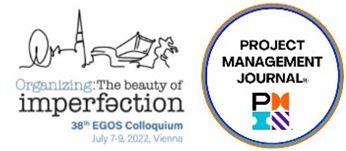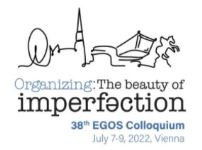Smart products and services are about to transform both markets and companies. Since 2019, scientists discuss corresponding managerial issues during the Conference on Challenges in Managing Smart Products and Services (CHIMSPAS, see videos from the first event and the last one). CHIMSPAS 2023 will take place on-site in Bielefeld, a lovely town in the center of East Westphalia. In these past years, a vivid community of researchers with various backgrounds, especially from the fields of service management, innovation management, and business information systems, emerged. Again, we cordially invite researchers and practitioners from these and other management fields as well as from other disciplines such as engineering, psychology, or law to join us for another CHIMSPAS event. We welcome conceptual, empirical, and analytical works to be presented at CHIMSPAS. Possible contributions should be submitted as extended abstracts. Both completed research and work in progress are eligible. Awards for the most influential conference contributions will be presented during the conference.
Topics of Interest: Conference contributions need to be related to challenges in managing smart products and services, which might arise in diverse fields such as those listed in the following:
- Business Information Systems Engineering (e.g., establishing smart service platforms)
- Entrepreneurship (e.g., collaboration with startups in developing smart products)
- Human Resource Management (e.g., new skills required, new working styles or cultural norms)
- Innovation and Technology Management (e.g., barriers to smart product adoption and diffusion, acquisition of required technologies)
- Logistics (e.g., continuous tracking of products w.r.t. location, current condition, environment)
- Marketing (e.g., finer customer segmentation, better after-sale service, novel pricing strategies)
- Organization (e.g., new organizational structures to coordinate units more closely)
- Production (e.g., predictive analytics enabling service innovation in manufacturing, industry 4.0)
- Services Management (e.g., smart service systems)
- Strategic Management (e.g., new business model, importance of data, open or closed system)
Conference Co-Chairs
- Prof. Nicola Bilstein, University of Bayreuth
- Prof. Christian Stummer, Bielefeld University
Submission Deadline: 03 April 2023.
Conference: 24-25 August 2023.
Conference Website: here.
View the complete Call here.





